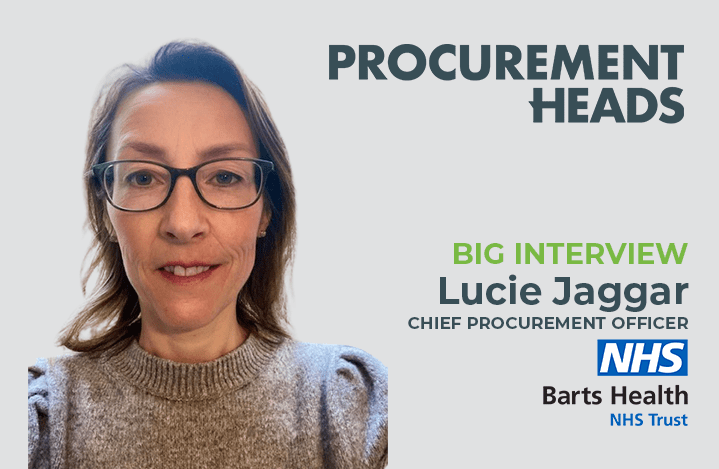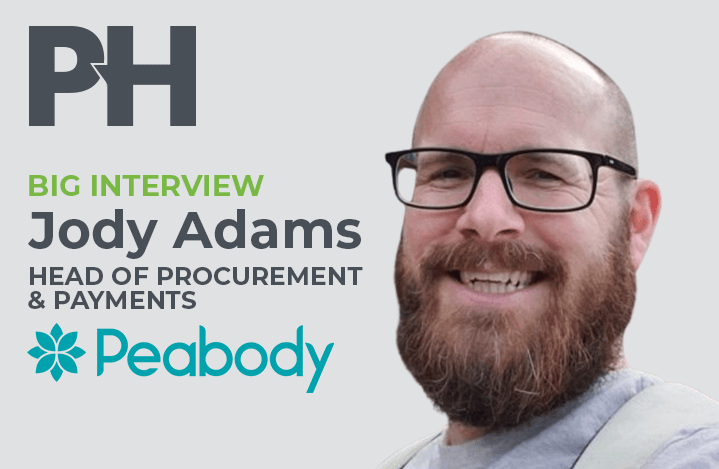For this instalment of Procurement Heads‘ Big Interview series, Lucie spoke with James Dobbin about her career and how the pandemic has shone the spotlight on procurement and supply chain.
How did you get into procurement?
It may be hard to believe, particularly in the current pandemic but I hadn’t heard of procurement or supply chain when I was at University. I attended lots of employer presentations as part of thbartse milk round and I went to an aerospace company presentation who were looking for graduate trainees to implement a new manufacturing supply chain system in one of their factories. They said they had never had a woman apply for a supply chain role before –when I heard that I knew I had to apply!
In my application, I said I wanted to be the first Head of Procurement, and I think that got me the interview. I got the job and the challenge really excited me. It was the fact that procurement genuinely has to be involved and has a role to play in every single part of an organisation. That’s what makes it an exciting area to work in.
Did you find any barriers to entry in a male-dominated industry?
There was a mindset and a way of thinking in the 90s that was a legacy from when women first came into the workplace – in those days there was a general understanding that the best way to get ahead was to pretend you are a man. Happily, things have changed and I see increasingly a valuing of diversity within teams and an appreciation that inclusivity drives the best outcomes. We still have some way to go to ensure a level playing field and to allow women to thrive but I’m encouraged by the progress.
Flexible and part-time working, alongside a focus on the gender pay gap, are big drivers to attract and retain capable women through their career.
Did you find yourself adopting male traits to get by?
When I was younger, yes! When I was working in manufacturing I developed a love of football so I had something to talk about with male colleagues on a Monday morning – I’m not sure Brighton and Hove Albion was the best choice – but again, this is changing and it’s an ability to get on with people and value difference as much as similarity that is so important now.
Barts Health has led the way and won awards with its strong Inclusion and Diversity team and staff networks. I co-chair the women’s network at Barts Health and we place a strong emphasis on encouraging women to be genuine and authentic, to be themselves and believe they have a strong contribution to make.
What are your thoughts now on how women are represented and perceived in the profession?
There are growing numbers of women in the profession and I’m privileged to work with strong female leaders in other Trusts and within Barts which has a ripple down effect and encourages females to go for career progression. We need to be role models and use our networks to create interest and talent development programmes.
We nominated one of our female members of staff for the HCSA Young Procurement Professional two years ago. She won, which was great! And her career has gone from strength to strength. It is about creating a groundswell of self-belief and confidence in the next generation of women. In the current pandemic, procurement and supply chain have been in the spotlight and we can capitalise on that to attract the next generation of future leaders, male and female.
How can we encourage more women to choose procurement as a viable career?
Be visible and be vocal. My team sponsor a Tower Hamlets women returning to work programme. Every year we take on women returning to the workplace for a year’s placement in our procurement team. It is about helping to build skills and letting them know that there are several roles that you can take on in the procurement team and allowing them to apply for other roles. We are also involved in an apprenticeship team looking at working with school leavers to encourage them to apply for apprenticeships across Barts Health.
The role of public ‘Anchor Institutions’ is going to be more and more important as we experience the effects of the Covid pandemic in the economy. I am a great believer of the lift while you climb approach and while you work up through your career, helping other women to get a foot up the ladder is really important. I only arrived at Barts Health because a female colleague rang me and told me I should apply for it. I didn’t think I had the experience but I applied for it and 5 years later I am still here.
Looking back to the start of your career were there any females that inspired you particularly?
My first line manager when I worked for Mars Confectionery was really inspirational and encouraged me to apply for jobs and pushed me outside of my comfort zone, I remember her saying to me – “Don’t ask why you should go for a job ask why wouldn’t you go for a job.” Our current Chief Exec and Chief Nurse at Barts Health are inspirational women passionate about equality and equity in the workplace.
What advice would you give your younger self?
To be tenacious and not to fear failure, not to pressure yourself to have all the answers. I suspect in my experience that is a trait that most women have – wanting to feel like you are 100% in control in your job, which working in the NHS at the moment is practically impossible!
We need to ensure we don’t prioritise confidence over competence, rather we need competent people who we can help build the confidence of.
At the start of the pandemic, Barts Health was asked to set up and run the Nightingale hospital in London, and on the last weekend before we went into lockdown I got a call from an army major saying that they needed my team at the site on Monday as they had 10 days to create a hospital for 4,000 patients. I put the phone down and felt terrified. But using those principals of going at this with a positive approach and gathering a team of experts together stood us in really good stead. It was a huge undertaking that was difficult and depended on teamwork. I am so proud of what the Barts Health team achieved in very challenging circumstances.
What do diversity and inclusion mean to you?
It means everybody having an equal platform and equity of opportunity. It means listening to as many different voices as you can and ensuring that everyone has that opportunity to be heard. I’m very proud of the makeup of my team, we have very strong representation across all staff groups and we genuinely have a diverse team of 85 people at the trust who have risen to the huge challenge of the last nine months. That thinking and approach is something I want to make sure gets replicated. It often brings different ways of thinking and it is what we should all be striving for.
Within Barts Health, we have a policy of having inclusion ambassadors present at every senior level interview to make sure we have equality and that we are asking the right questions and treating the candidates equally and fairly. We have actually gone as far as putting in targets now which I don’t think many organisations have done. We are currently setting targets for the gender pay gap which will be a positive force for good.
I’m also encouraged by what I see in our partner NHS organisations – HCSA (Healthcare Suppliers Association), SCCL and the London Procurement Partnership (LPP). Diversity and Inclusion in a healthcare setting also mean that our staff are representative of our patient population so that we understand our patients and they feel connected and at the heart of everything we do.





